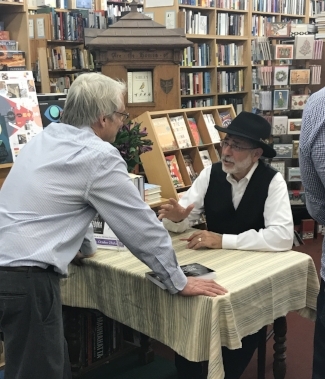How to Know When Your Book is Done
One of the issues that comes up frequently with my clients and students, especially those who have been working on a particular project for a long time, is “How do I know when it’s done?”
1) The most telling indication, I believe, is when you realize you are simply moving furniture around and not revising. You are no longer improving your work, but simply changing it. It’s not better, it’s just a different way of expressing what you want to express. When that happens, it’s time to put down the pencil (pen, cursor, etc.) and let it be.
2) When you find yourself having trouble choosing between one word, one phrase, one sentence, one paragraph or another, it’s time to stop. You’re not improving, just changing things. (See above.)
3) You spend inordinate amounts of time in indecisive revision. Despite the stories of famous authors spending days on one word, you’re not them. Hemingway is said to have rewritten the ending to A Farewell to Arms forty-seven times. Fine, he’s Hemingway, and he probably drove his editor to near suicide. Don’t be that crazy.
4) Read your work out loud. How does it sound? If it flows, let it go. If not, fix those spots, but don’t agonize over the whole manuscript.
5) Let it marinate for a while. Put the book (story, poem) in a drawer for a period of time. Advice varies on this—I would say at least a month, some say a year. Whatever it turns out to be, you will come back to your work with fresh eyes (and a fresh sensibility). Things will jump out needing work, or the whole manuscript will wow you. Either way you will know what to do.
6) Go for a walk! Get away from the work. Put some space between you and the writing. This is similar to No. 5, but it’s more appropriate while you’re in active revision. I have always found a sojourn into the woods or to the beach opens up new approaches to the writing. Get away.
7) Recognize when things aren’t working and likely never will. Sometimes the story just isn’t working. LET IT GO! At some point it may morph into something else. But sometimes you have to be brutally honest with yourself and realize some projects just aren’t ever going to work.
8) There are writers who outline and writers who don’t. If you’re one who doesn’t, and find yourself stuck in a cul de sac, it’s time to go back to the drawing board. Consider an outline.
9) Do you still care? If you have come to the place in your heart where you HATE this project, it’s time to step away. Perhaps not forever, but for now.
If any of these things are true for you, take stock. You may be ready to submit. Or perhaps not.
One final thought: I am assuming you are in a writing group or have been able to take advantage of writing workshops or the expertise of a good editor to get feedback along the way. If not, get yourself into a competent group or hire a good writing coach. You can’t learn how to write in a vacuum; it takes years of practice and mentoring. Take advantage of every opportunity to master writing. Then trust your gut and heart when deciding if your book is done.







